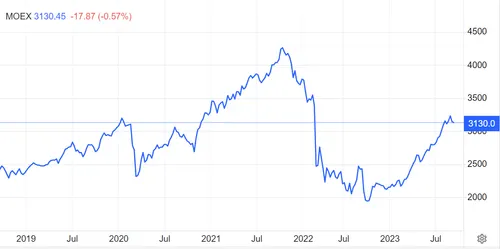Our partner, XM, lets you access a free demo account to apply your knowledge.
No hidden costs, no tricks.

The financial markets are delicate systems that unite millions of players around the world. Market performance depends on a wide variety of factors working in tandem and any major disruption can cause investors to panic and returns to plummet.
When a “black swan event” happens, the markets react very rapidly and returns begin to quickly diminish.
Such events can range from natural to human-made and destroy billions of dollars in investor value and sometimes cause nationwide recessions, which affects much more than the markets.
But what specifically are black swan events and what notable such events have happened on the markets in the past?
A good indication of a black swan event is the S&P 500, which is considered as the primary stock market benchmark for the United States and the world. When the S&P 500 index drops rapidly, it is usually due to an unexpected major event that causes investors to panic and start selling off their holdings - causing the market to nosedive.
If you would like to know more about black swan events and how they affect the markets - this Investfox guide is for you.
Black swan events range from natural disasters, such as earthquakes and hurricanes, to man-made events, such as economic collapses, terrorist attacks, wars, etc.
Black swan events also vary in terms of severity. While some events may cause a mild slowdown in the markets, others can threaten the integrity of the entire global financial system.
Natural disasters, such as hurricanes, earthquakes, wildfires, and volcanic eruptions are some of the most devastating events on earth.
Aside from the enormous human cost, natural disasters also affect financial markets in an adverse fashion.
There are numerous examples of natural disasters affecting the markets, or a specific sector of the economy. Some notable examples of natural disasters that caused market downturns include:
It is important to consider that even major natural disasters have not managed to cause a worldwide economic recession. Most financial crises are caused by man-made factors, such as asset bubbles and health crises.
Armed conflicts can render the economy of the affected countries dysfunctional. For example, the Russian invasion in Ukraine and the subsequent western sanctions have caused many Russian stocks to pause trading.
The MOEX Russia Index, which is the benchmark index of the Russian stock market, fell from 4,558 in October 2021 to 1,853 in October 2023.
Armed conflicts shift national economies into “war economics”, where military companies receive massive funding and try to carry the economy through the conflict by creating new jobs in the industry, however, this is typically not enough to avoid a recession.

Pandemics, such as the Covid-19 pandemic, have major adverse effects on economic performance. Due to the lockdown measures around the world, financial markets globally suffered in 2020.
The S&P 500 fell from 3,380 on 14 February 2020 to 2,304 on 20 March 2020.
While the drop was fast and steep, the markets quickly recovered and marked a bull run that lasted well past 2021.
However, pandemics also cause certain industries to experience massive growth - primarily the biotech and pharmaceutical industries, as they work to develop a cure/vaccine. Whichever company wins the “race” will be able to greatly increase its revenues.

Our partner, XM, lets you access a free demo account to apply your knowledge.
No hidden costs, no tricks.
In financial trading, a black swan event is an unexpected drop in asset prices due to a major external factor, such as a natural disaster, war, pandemic, etc.
There have been numerous black swan events over the years that have affected regional and global markets.
Black swan events can cause major supply chain disruptions and deal insurance damages, which adversely affects the economy and consequently, the market.
Yes. Covid-19 can easily be classified as a black swan event in the financial markets. Strict lockdown measures and supply chain disruptions caused the global financial markets to incur heavy losses during the pandemic.